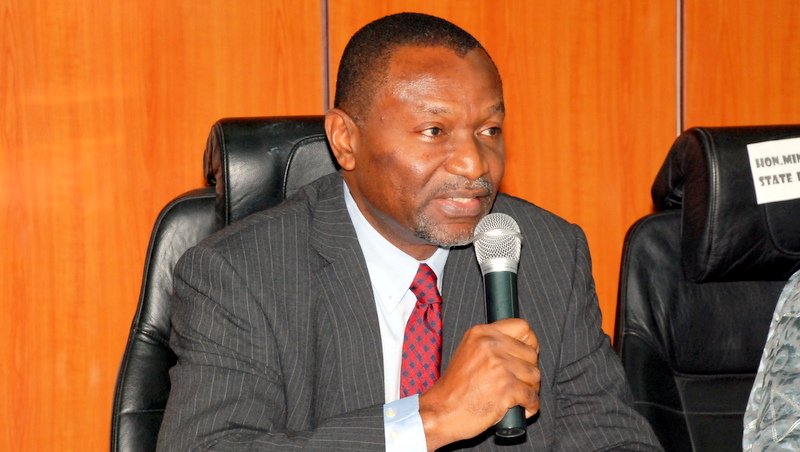
2018 Budget Deficit Hits N1.950 trn
The federal Government budget for 2018 just assented to by President Muhammadu Buhari has an overall budget deficit of N1.950 trillion.
Minister of Budget and National Planning, Senator Udoma Udo Udoma stated this in his public presentation and breakdown of the 2018 budget Thursday in Abuja.
Senator Udo Udoma said the development represents 1.74% of Gross Domestic Product (GDP), adding that the projected deficit was within the threshold stipulated in the Fiscal Responsibility Act (FRA) 2007.
He noted that the budget deficit is to be financed mainly by borrowing N1.643 trillion made up of domestic sources of N793 billion and foreign sources of N849 billion, stressing that a total of N306 billion is expected from privatization proceeds and N5 billion from sale of other government property to part finance the deficit.
He further stated that 2018 Federal government of Nigeria spending estimated at N9.12 trillion, exceeded 2017 financial year projection by 23%., adding that at N2.01 trillion, debt service is 21% of planned spending (about same as in financial year 2017).
He said that there was provision to retire maturing bond to local contractors which increased by 7% from N177 billion in financial year 2017 to N190 billion in view of the ambitious plan to liquidate all contractor arrears of the federal government of Nigeria going back to several years.
Senator Udoma also said that the recurrent (non-debt) spending is expected to rise by 17%, from N2.99 trillion in 2017 to N3.51 trillion, while capital expenditure (excluding transfers) is higher by 22% from N2.36 trillion in 2017 to N2.87 trillion, stressing that capital spending is 31.5% of total federal government expenditure in 2018.
He however noted that the 2018 Budget proposal seeks to continue the reflationary policies of the 2016 and 2017 Budgets which helped put the economy back on the path of growth.
According to him, the federal government plans to continue to spend more on ongoing infrastructure projects that have potentials for job creation and inclusive growth, while leveraging on private capital and counterpart funding for the delivery of infrastructure projects.
Udoma also said that as with 2016 and 2017 budgets, the 2018 budget has been prepared on the Zero-Based Budget (ZBB) Principles.
